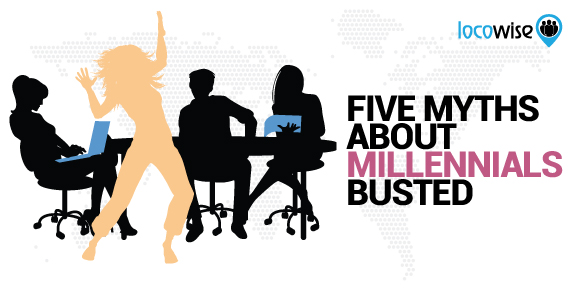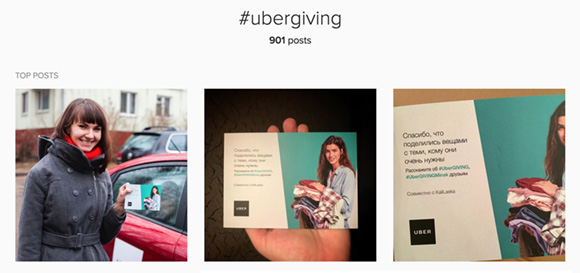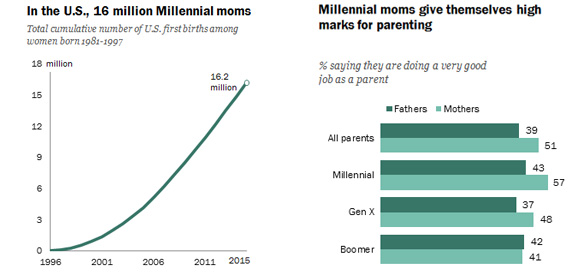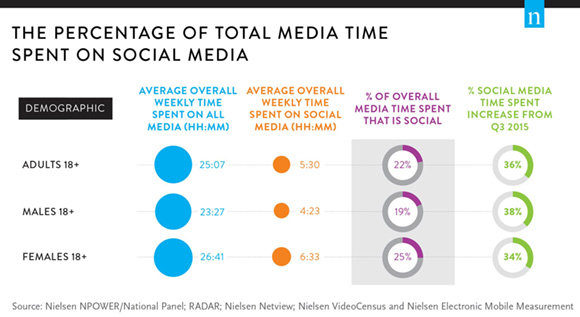Five Myths About Millennials Busted
Catherine Hayden posted on 20 April 2017
Millennials are a huge – but misunderstood – market. The ‘social media generation’ is outnumbering baby boomers in many countries, putting a lot of purchasing power up for grabs.
According to Nielsen, they’re spending more than $65 billion a year in the US and influencing more than $1 trillion in total consumer spending there.
But there are a lot of misconceptions surrounding millennials.
The most common ones focus on their attitude: it’s believed that they are ‘lazy’ and ‘entitled’. Research proves this isn’t true. Research also proves that we’re getting a lot wrong when it comes to understanding how to reach them on social media. Don’t buy into the myths.

Myth #1: Millennials Are Kids
On 2016, millions of millennials celebrated their 35th birthday. When you think of a ‘millennial’, it’s likely you’re imagining an entitled ‘kid’. Fact: that kid you imagine on Snapchat could have two kids and a mortgage.
If this seems surprising, it could be because there’s a lot of confusion out there about what a ‘millennial’ actually is. According to the Pew Research Center, probably the most reliable source, millennials are ‘those born after 1980 and the first generation to come of age in the new millennium.’
While they’re working hard to get ahead, some millennials are already building families. Just like their parents did. More research from Pew, conducted in 2015, found that six in 10 millennials considered being a parent ‘extremely important to their overall identity’.
The takeaway: Don’t talk down to millennials. They’re adults, and they might even be parents.
Myth #2: Millennials Are Addicted To Social
Middle-aged Americans actually spend more time on social media than millennials. The idea that millennials never look up from their smartphones is another millennial myth. A Nielsen report found that generation X (people aged 35-49) are the winners when it comes to time spent online in the States.
Gen X spends almost seven hours a week on social media via their smartphones. Millennials spend a little over six hours a week. When it comes to all online media, the study found that gen X-ers spend about 32 hours a week consuming it, where millennials spend 27 hours. Those over 50 spend about 20 hours a week on all media.
While millennials are spending less time than we’d thought online, there are also more gen-Xers on the most popular platforms than there are millennials. Pew found that more gen X-ers use Facebook, Twitter, Instagram, Pinterest, and LinkedIn than millennials.
The takeaway: Don’t assume social media marketing is an easy ride when it comes to millennials. They don’t spend more time online than any other demographic, and they’re not guaranteed to see everything you post. Like every other demographic, they won’t get exposure to your content unless it’s carefully targeted.
Pro tip: If you’re not sure your targeting is working, make sure you’re making the best of the resources your social media performance monitoring tools have to offer when it comes to tracking how effective your campaigns are.
Myth #3: Millennials Are Entitled
Millennials are thought of as being entitled and self-involved, especially in the workplace. A piece in The Economist explored this, concluding that there aren’t actually that many differences between millennials and older generations.
The author argued that ‘It would be going too far to say that there are no differences between the generations. There are variations in consumption patterns. Young people are much more likely to get their news from BuzzFeed than baby-boomers are.’ Still, they ended, ‘they want roughly the same things [as other generations] regardless of when they were born.’
What’s important here is not how self-centred or altruistic millennials are (see below for more on their altruism), but their consumption patterns. We know that they spend a fair amount of time online – if not as much as we thought – but we also know that millennials are truly a generation of multitaskers and that you only have a small window of time to capture their attention.
The takeaway: Treat millennials like you would any other generation. Pay attention to where they are online and what they’re doing there. There are differences between millennials’ online behaviour and the online behaviour of the baby boomers, but their basic concerns are the same. Use your marketing savvy to thoroughly tease out the differences and the similarities between the demographics you work with.
Fun fact: If you do a Google search for ‘me generation’, baby boomers will come up. Not millennials.
Myth #4: Millennials Are Too Distracted
Millennials might be multitaskers, but that doesn’t mean they’re distracted. In fact, they’re very loyal.
According to research from the US Chamber of Commerce Foundation, ‘It all comes down to trust for brands. The trust is deeper and more intense with this group.’
Two surveys covered in an article on Inc found that of all the generations surveyed, millennials were the most brand loyal. Just over half said that they were ‘extremely loyal’ or ‘quite loyal’ to their favourite brands.
This is surprising because, as the US Chamber of Commerce Foundation research points out, millennials switch between social platforms 27 times an hour.
So you have to work hard online to develop and maintain that trust. But the good news is that much of the research shows that Millennials are open to new experiences and new brands. ‘They are eager to interact with brands and interested in building relationships with them. They have the self-assurance to stand up for what they believe.’
The takeway: If you can find out what your millennial target market believes in, you’re more likely to engage them. Long-term relationships develop trust, as does transparency.
Myth #5: Millennials Are Self-centred
Actually, millennials are one of the most altruistic generations. The US Chamber of Commerce Foundation study commented on the fact that social now plays a major role in connecting people around social and political causes.
This generation wants brands to care about causes, too. Inc reported that nearly 50 percent of people surveyed wanted brands to offer socially conscious benefits like giving to charity. This doesn’t have to mean actual spend. Brands like Chevron, Pfizer, and Bank of America are listed as among the top 20 charitable spenders in the US, but that doesn’t mean they have the most memorable marketing campaigns.
It’s not all about spend – it’s about authenticity. Uber, for example, don’t have Pfizer’s advertising budget, but they do have an attitude that millennials can relate to.
Rachel Pettit, UK marketing and development lead at Uber, has said that while Uber’s charitable initiative Uber Giving is at its core about charitable donations, she believes that the initiative must have a return for the business. ‘It’s less about being nice, more about being honest about who we are.’
Millennials’ online involvement in social causes gives social media marketers a great window into how best to angle their messaging. Once you’ve delved into your audience’s core beliefs and concerns, you’ve got a far better chance of appearing on their feed.

The takeaway: Millennials want to give back. Show them that your brand does too, but be real. More than any generation before them, millennials are highly critical of brands’ values. Make sure your values are aligned with theirs and that your social strategy reflects this.
For five social media marketing strategies that do work with millennials, see this post on our blog.






